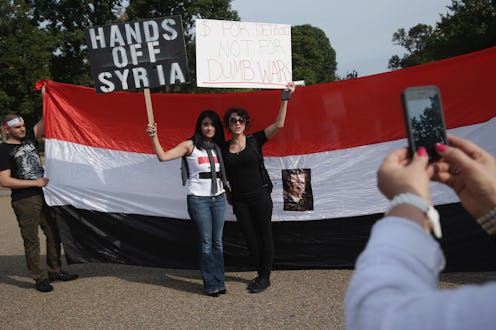News
Can Russia and the U.S. Agree on Plans for Syria?
The U.S. is about to find out how serious Russia and Syria are about avoiding a military strike.
On Thursday, Secretary of State John Kerry made his way to Geneva, Switzerland to sit down with Russian officials. Upon his arrival, Kerry was greeted with a new insult from Syria, as President Bashar al Assad told Russian television, "Syria is handing over its chemical weapons under international supervision because of Russia. The U.S. threats did not influence the decision."
Previously, Russia's President Vladimir Putin also had some unkind words for Kerry, calling him "a liar" when it came to his testimony on al Qaeda's infiltration of rebel forces in Syria.
Over the next two days of meetings the goal is to figure out a rough plan for amassing and then dismantling some 1,000 tons of chemical weapons — along with their related materials and delivery systems.
In addition to the creation of a plan, Kerry wants a quick turnaround when it comes to agreement on the basics of the process, and an full account of just how many chemical weapons Syria actually possesses. Some have speculated that Russia's push for Syria to surrender their chemical weapons (and Syria's subsequent agreement to so) is more of a stalling tactic than an actual concession.
According to a U.S. official joining Kerry for the trip, the challenge is "doable, but difficult and complicated."
The meetings come about just as Russia's President Vladimir Putin published an op-ed in the New York Times, criticizing the United States' plans for a military strike:
The potential strike by the United States against Syria, despite strong opposition from many countries and major political and religious leaders, including the pope, will result in more innocent victims and escalation, potentially spreading the conflict far beyond Syria's borders. A strike would increase violence and unleash a new wave of terrorism.
Putin's article went on to stress the importance of international law, and the need for approval from the United Nation's Security Council for a strike on Syria. He also reaffirmed his belief that the use of chemical weapons could have been the result of Syrian opposition forces.
John Kerry is joined in Geneva by technical experts who worked on the inspection and removal of weapons in Libya and in Iraq after the first Gulf War.
